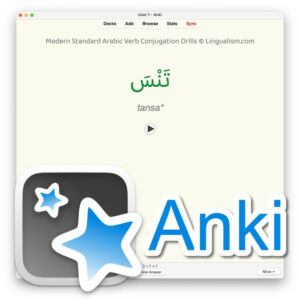In IPA phonetic transcription and in Lingualism’s phonemic transcription, the glottal stop is represented by the symbol ʔ. (In some other transcription, transliteration, and romanization systems, it is represented by an apostrophe.) In Arabic script, it’s the letter hamza (ء), which (according to rather complex orthographic rules we’ll tackle in another article) can be written independently or ‘seated’ on another letter (أ إ ؤ ئ).
Arabic learners often mistakenly believe that the glottal stop is a strange, quintessentially Arabic sound that is difficult to pronounce. In reality, the glottal stop exists in most languages to some extent, so we all produce the glottal stop sound on a regular basis. We just may not be aware of it because it is not a phoneme in many languages (including English). People aren’t generally aware that the glottal stop exists in English since it does not have a letter of the alphabet to represent it. But it does. And it’s worth taking a look at its usage in English first to help us better understand how to deal with it in Arabic.
The glottal stop is often explained to Arabic learners using an example like ‘uh-oh’ or the Cockney pronunciation of ‘water’ (“wa’er”), where there’s a ‘catch in the throat’ that prevents two vowels from flowing together.
Another example is the Hawaiian pronunciation of Hawai’i [həwɐjʔi], where a glottal stop separates vowels in the final two syllables. Compare this to the more common English pronunciation of the state, where the vowels are connected with a y-glide [həwɐji].
But here’s another example of a glottal stop in English: Apples [ʔæpəlz]. And here’s an example of a word without a glottal stop: apples [æpəlz]. Let me explain.
Words that (seemingly!) begin with a vowel (at the beginning of a sentence or after a pause/comma) are actually pronounced with an initial glottal stop. (Okay, if we wanted to be pedantic about terminology, we should call it a ‘glottal plosive’ since you can’t start with a stop… but we’ll stick to ‘glottal stop’ for simplicity.)
It is physically difficult to start an utterance with a pure vowel sound; we actually begin with a slight plosive sound, a ‘glottal stop.’
But, in English, the final sound of a word links to the following word when it begins with a vowel. So, ‘red apples’ is pronounced re-dapples [rɛ dæpəlz]. If you were to throw in a ‘break’ between the words to avoid linking the sounds, you’d essentially be inserting a glottal stop to make this happen: [rɛd ʔæpəlz].
Apples are apples. [ʔæpəl za ræpəlz] So, in English, the utterance initial ‘apples’ begins with a glottal stop, while the other ‘apples’ begins with the final sound of the previous word.
The takeaway from the above is this: When a glottal stop comes at the beginning of a word, we may not perceive it, but we also don’t need to do anything special to pronounce it correctly.
We can say that both Arabic and English phonology follow the rule that every syllable begins with a consonant, whether that consonant is a glottal stop or another consonant sound. A syllable cannot start with a vowel sound. It is a bold statement because if you asked English speakers if a word can start with a vowel sound, 99% of people would, with certainty, say yes and even give you examples, having no idea that they were, in fact, producing a glottal stop at the beginning of each of these words since the glottal stop is not a recognized phoneme in English. But you know better. (Still, good luck collecting from others on that bet!)
Now, let’s take a look at Arabic. The glottal stop is a recognized phoneme. Arabs are aware of the sound because it is represented by the letter hamza (ء). An Arabic word that sounds like it starts with a vowel to an English speaker is written with a hamza (ء) seated on an alif (ا).
| أَ | ʔa- |
| أُ | ʔu- |
| إِ | ʔi- |
| آ | ʔā- |
The difference here between English and Arabic is that Arabic words that begin with hamza retain the glottal stop regardless of whether the word is utterance-initial or not.
أُريدُ أَنْ أَكْتُبَ.
ʔurīdu ʔan ʔaktub.
(I want to write.)
In the example above, all three words begin with a glottal stop. The final sound of one word does not link to the next word because it does not begin with a vowel.
To an English speaker’s ear, all three words sound like they start with a vowel. And, for all intents of purposes, they do. Just be careful to avoid linking the words together (ʔurīdu wa naktub). Pronounce each word with a distinct separation from the word before it, and you’ll automatically be pronouncing glottal stops.
Remember to retain the glottal stop when adding the definite article to a word beginning in hamza-alif: الأطْفالٌ alʔaʈfāl (the children). Without the glottal stop, the l of the definite article would become the initial consonant of the following syllable (a-laʈ-fāl), which is incorrect pronunciation. Of course, the definite article, when utterance initial, begins with a glottal stop, so we could write ʔalʔaʈfāl, but in our phonemic transcription system, we only write ʔ when a word begins with a written hamza and retains would retain its glottal stop when non-utterance initial.







